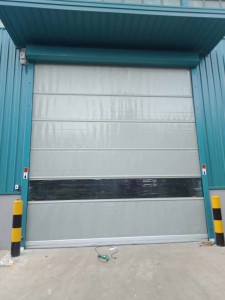Maintaining the functionality and longevity of your garage door is an important aspect of home security and convenience. While the internet is flooded with DIY maintenance tips, it’s important to distinguish fact from fiction. An often debated topic is whether WD-40 is suitable for garage door maintenance. In this blog post, we aim to discuss the dos and don’ts of using WD-40 on your garage door so you can make an informed decision.
Myths Surrounding WD-40:
Known for its versatility, WD-40 is common in many homes. It is a multi-purpose lubricant that functions in a variety of applications. However, its common use has led to some misconceptions about its effectiveness for garage doors. Many people think that WD-40 is the ultimate solution to all garage door related problems, but this is far from the truth.
Learn about garage door mechanisms:
Before delving into the use of WD-40, it’s worth understanding the mechanics behind your garage door. Garage doors operate using a system of tracks, springs, hinges and rollers. The complex interaction of these components requires proper lubrication for smooth, efficient motion. However, liberal use of any lubricant, including WD-40, may do more harm than good.
Considerations for Using WD-40 on Garage Doors:
1. Hinges and Springs: When lubricating garage doors, WD-40 is very useful for some parts. Hinges and springs are two areas where WD-40 can be effective. Applying a small amount of WD-40 to these moving parts will help reduce friction and allow for smoother door movement.
2. Anti-rust: WD-40 is an excellent anti-rust agent suitable for protecting metal parts of garage doors. Applying it to areas prone to rust, such as tracks and lock mechanisms, will help inhibit corrosion and extend the life of your door.
Considerations for Using WD-40 on Garage Doors:
1. Rollers and Tracks: While WD-40 is great for removing rust and loose mechanisms, it is not a suitable long-term lubricant for garage door rollers and tracks. These components require specialized silicone or lithium-based spray lubricants to ensure optimum performance. Over time, WD-40 will attract dust and debris, causing buildup and possibly even sticking to the composition.
2. Torsion Spring: The torsion spring is responsible for balancing the weight of the garage door. WD-40 is not recommended for lubricating torsion springs due to the enormous tension they operate under. It can cause the spring to become too slippery, affecting its effectiveness and putting undue stress on the rest of the garage door system.
In conclusion, while WD-40 does have its uses when it comes to maintaining your garage door, it’s crucial to know when and where to use it. It is acceptable to use WD-40 for hinges, springs and rust protection. However, for garage door rollers, tracks, and torsion springs, it’s best to use a special lubricant designed for these parts. By following these guidelines, you can ensure your garage door runs smoothly, avoid unnecessary maintenance, and extend its life.
Post time: Jul-10-2023

